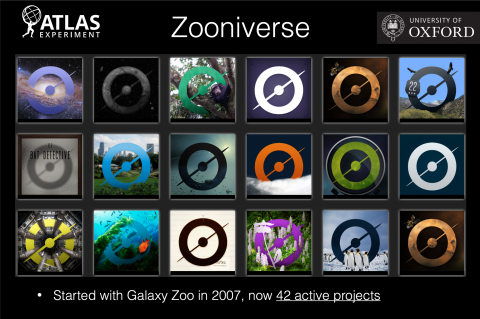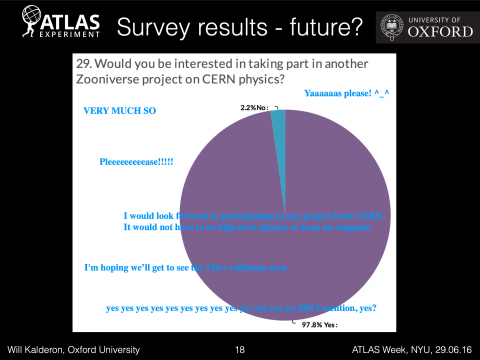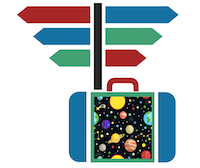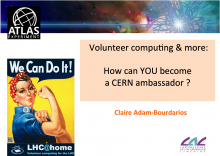In the EPS 2015 conference, the three ATLAS projects targeting citizen science were described as follows:
" The goal of the HiggsML project was to bring particle physicists and data scientist together by a “challenge”: compete online to obtain the best Higgs to tau tau signal significance on a set of ATLAS fully simulated signal and background. The challenge ran from May to September 2014, drawing considerable attention. 1785 teams participated, making it the most popular challenge ever on the Kaggle platform.
Higgs Hunters is the first Particle Physics project hosted on a web-based citizen science platform called Zooniverse. Volunteers are asked to scan ATLAS data and Monte Carlo events, looking for secondary vertices. Results will be compared to the ATLAS secondary vertex finding algorithm in the context of the search for long lived particles in Supersymmetric models. So far more than 5,000 users have taken part, classifying more than 600,000 interesting features in ATLAS event displays.
The ATLAS @ home project allows volunteers to run simulations of collisions in the ATLAS detector. During the first year the community essentially consisted of software fans, who were attracted by the technical challenge and contributed a lot to the debugging via message boards. With the start of LHC, the number of people attracted for outreach reasons is growing.
The presentation evolved over years, thanks to a better understanding of the difference between "outreach", citizen science and interdisciplinary partnerships
- 2015: Involving other communities through challenges and cooperation : EPS talk slides and proceedings paper
- 2016: ISGC16 conference slides and talk to the CERN OpenLab summer students on Volunteer Computing at CERN
PROJECT SPECIFIC LINKS
- 2016 - Phase 1 "That looks weird' - evaluating citizen scientists' ability to detect unusual features in ATLAS images of LHC collisions" . The project makes it to the Higgs 4th anniversary CERN news, with the subtitle "A new citizen science project gives sofa-scientists the chance to search for previously undiscovered particles". See also CHEP16 slides and proceedings .
- 2018 - Phase 2 LHCP18 talk Recursive engagement: the public as data analysts and outreach creators & CERN globe recorded conference .
- 2019 - Wrap up Interview on YouTube
Volunteer computing - ATLAS@home
- Volunteer Computing Experience in ATLAS: CHEP16 slides and proceedings; CHEP15 proceedings
HiggsML - The first ATLAS Machine Learning Challenge
The Higgs Machine Learning Challenge was an open data analysis competition that took place between May and September 2014. One of the primary goals was to promote communication of new ideas between the Machine Learning and HEP communities. In this regard it was a resounding success, with almost 2000 participants. The data were then released publicly to be used for academic research.
- Kaggle competition site
- ATLAS news @ start, completion, open data epilogue
- HEP publication: CHEP15 slides and paper
- ML publication: Journal of Machine Learning 2015 conference proceedings



